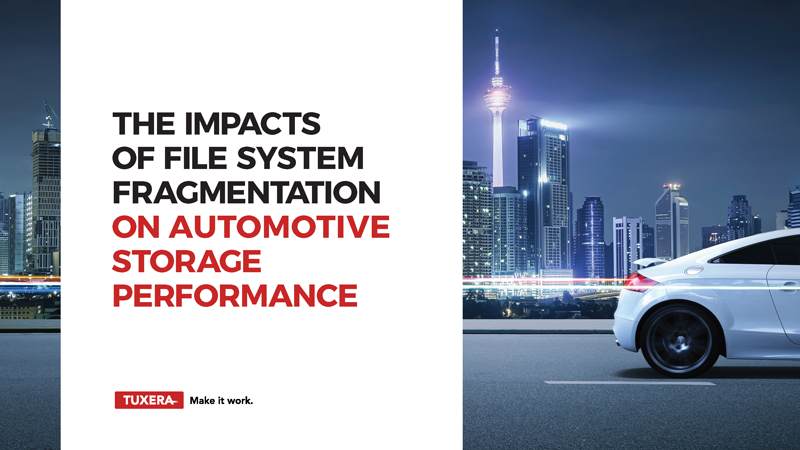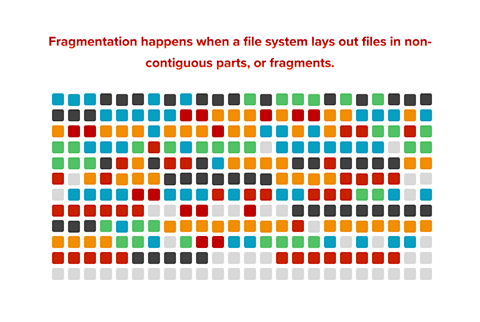Prepare for CRA compliance as Interniche NicheStack TCP/IP will reach end of general support
We at Tuxera are dedicated to developing products that are secure and resilient against the threats of the connected world....
We are here to help
Have a question or need guidance? Whether you’re searching for resources or want to connect with an expert, we’ve got you covered. Use the search bar on the right to find what you need.


Fragmentation is a potential cause for sluggish automotive storage performance. Read about the impacts of file system fragmentation and how to reduce them.
It’s important for car makers and Tier-1 suppliers to choose their file system implementations wisely. File systems impact read and write performance of the storage, the integrity of the data stored, flash endurance or the lifetime of the memory hardware, and data and storage interoperability. Specific factors that affect file system performance include file size, device partitioning, or the file system implementations themselves. One additional factor Tuxera is currently testing is how fragmentation affects flash performance and lifetime.
Fragmentation happens when a file system lays out files in non-contiguous parts, or fragments. It generally occurs because there’s no space left to write new file content next to older file content. Some recent groundbreaking studies into flash memory performance have shown that fragmentation is a bottleneck for or cause for degrading performance. It’s also a factor we’ve currently been testing in our performance benchmarking lab.

Our automotive customers and partners come to us because they suspect the file system could be a root cause of problems such as frame loss, latency issues, and other performance concerns. Fragmentation affects the long-term performance of flash storage. In applications with intensive reading, writing, and rewriting of data, (such as cameras for autonomous driving) fragmentation may cause anything from small errors to critical system failure. If the storage is full and heavily fragmented, there will definitely be read/write issues. This can’t happen in a mission-critical system where safety and lives are concerned.
In the case of infotainment systems, performance loss due to fragmentation boils down to concerns over user experience and customer satisfaction. If the in-vehicle infotainment (IVI) storage is heavily fragmented, this means longer wait times for music and navigation apps to launch and be available to use. A minor inconvenience, but user experience is no small issue when it comes to differentiation for auto makers in the coming years.
Data-driven cars of tomorrow need intelligent storage software design today. Get everything you need to know about file system fragmentation—what it is, how it impacts storage performance, our research and test results, and how to solve it in our whitepaper., “The Impacts of File System Fragmentation on Automotive Storage Performance.”
Download the whitepaper here.
Suggested content for: